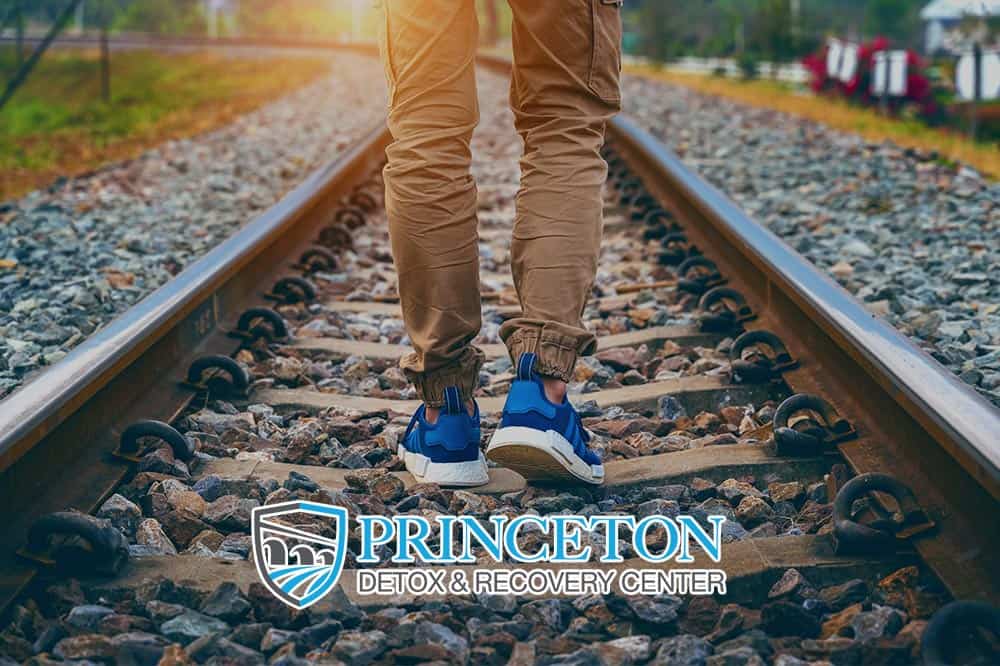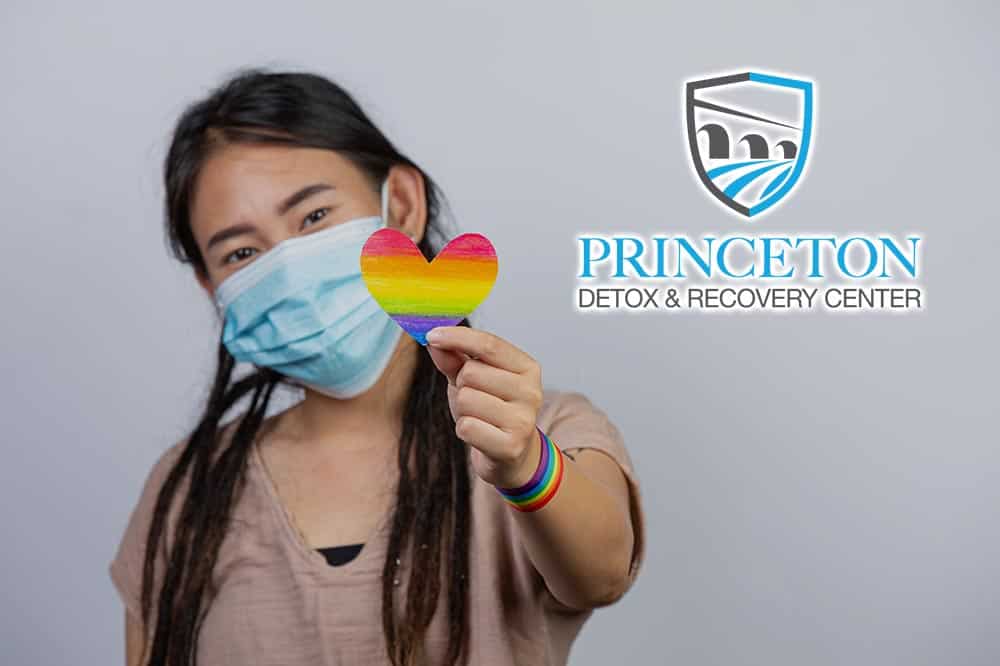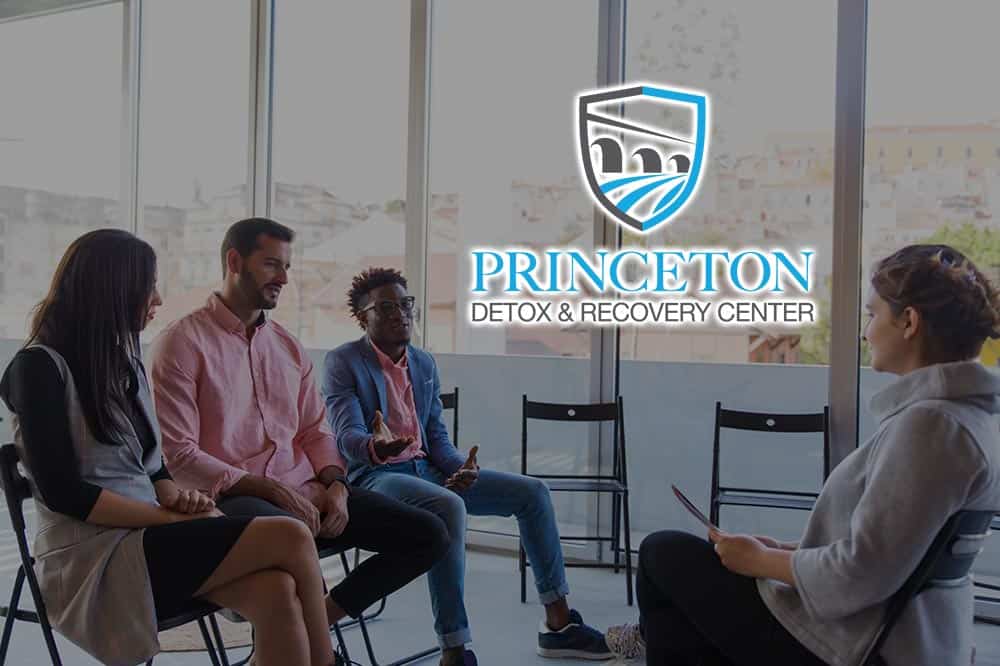Post-traumatic stress disorder (PTSD) is a debilitating anxiety-related disorder, one that stems from unresolved trauma. The symptoms of PTSD range from flashbacks and intense anxiety to persistent nightmares and insomnia. Because the symptoms are so severe and crippling, those who suffer from PTSD often turn to chemical substances as a means of self-medication. They take drugs hoping to alleviate some of their symptoms, but doing so will always backfire and ultimately exacerbate the symptoms long-term. Chronic drug abuse combined with post-traumatic stress disorder leads to a complicated form of dual diagnosis – one that can be successfully treated, but must be addressed thoroughly and inclusively in a designated dual diagnosis treatment center. Princeton Detox & Recovery Center is dedicated to helping men and women of all ages overcome co-occurring disorders and go on to lead healthy and productive lives of fulfilled sobriety. Our state of the art facility is located in the heart of the tri-state area, and serves New Jersey residents as well as individuals across the country who are seeking quality care in a highly professional, accredited facility. We are dedicated to offering a continuum of care that will effectively tackle all existing disorders, from mental illness to unresolved trauma or dual addictions. If you have been struggling with PTSD and drug addiction, we are available to help.
More on PTSD
Post-traumatic stress disorder stems from a severely traumatic event or a series of significant traumatic events. Different experiences affect different people in different ways. It is important to acknowledge that what one person interprets as traumatic may not cause the same emotional damage in someone else. Some common traumatic events that might lead to the development of PTSD include:
- War or military combat – A very high percentage of combat veterans struggle with unresolved trauma. In fact, the National Center for PTSD at the US Department of Veterans Affairs reported that between 60 and 80 percent of combat veterans who have been diagnosed with post-traumatic stress will concurrently struggle with a substance abuse disorder.
- Personal assault – Assault can be physical or sexual – many rape survivors struggle with symptoms of PTSD until their trauma is adequately addressed.
- Childhood trauma – Those that undergo trauma during childhood – such as abuse, neglect or the death of a parent – are significantly more prone to developing PTSD.
- Natural disasters – Those who experience significant disasters such as destructive earthquakes, wildfires, floods or hurricanes may suffer from unresolved trauma, especially if they – or one of their loved ones – was injured in the event.
- A severe accident – It is not uncommon for those who have been in a serious accident, such as a car accident or a work-related accident, to develop symptoms of a trauma-related anxiety disorder.
The symptoms that go hand in hand with this specific psychological disorder stem from a damaged psyche. The experience itself will dictate what type of symptoms develop, and symptoms will always be highly individualized because of this. For example, a woman who survives a violent sexual assault at the hands of a member of the opposite sex will likely develop symptoms that revolve around men. She may mistrust men, experience flashbacks when around men, and actively avoid men altogether to the best of her ability. A combat veteran, on the other hand, might be prone to violent outbursts, and may even begin engaging in physical assault (bar fights, domestic abuse) as a result of his newly developed anger issues. While specific symptoms will vary, there are several that remain rather consistent across the board. These include:
- Nightmares and insomnia
- Flashbacks
- Severe anxiety and recurring panic attacks
- Depression
- Angry and aggressive outbursts
- Active avoidance of potential triggers
Psychological symptoms of PTSD are unpredictable. They can occur at any time, and there is no way to determine how long they will last. They are generally spurned by a specific trigger, therefore all existing triggers must be identified in treatment, and healthy coping mechanisms must be adequately instilled. Those who suffer from untreated PTSD are also liable to experience a wide range of physical issues, from chronic pain to high blood pressure or diabetes. Drug use falls into the “avoidance” category – in order to avoid uncomfortable feelings and attempt to minimize or combat flashbacks, PTSD sufferers will turn to chemical substances.
More on Drug Addiction and War Veterans
Numerous studies suggest that PTSD is extremely common amongst one specific demographic – military combat veterans. A report published by the US Department of Veterans Affairs reports that roughly 2 out of every 10 veterans with diagnosed post-traumatic stress also struggles with a drug addiction. On the other hand, one out of every three veterans with a substance abuse disorder has also been diagnosed with PTSD. The connection between the two disorders is very clear. The same report concludes that one out of every 10 veterans returning from Afghanistan or Iraq quickly develops a serious substance abuse disorder. Binge drinking and heavy alcohol use are common among veterans, though in recent times the rates of drug use have spiked significantly. Of course, veterans are far from the only demographic that suffers from post-traumatic stress. This specific disorder is non-discriminatory, and anyone who has experienced trauma is liable to develop symptoms. Once symptoms do develop (in order to be diagnosed, they must persist for at least two months) they must be thoroughly treated in a dual diagnosis facility.
Ready To Begin Your Detox?
Don’t let addiction control your life.
Call us today and let’s get you started on the path to a better you.
The Link Between PTSD and Drug Addiction
The majority of those suffering from severe unresolved trauma will eventually end up turning to drugs and alcohol in an attempt to cope with distressing and disruptive symptoms. Because of this, there are extremely high rates of drug abuse and addiction among trauma sufferers. In fact, it was reported that 52 percent of adult American males and 28 percent of females with diagnosed PTSD will experience an alcohol abuse disorder at least once during their lifetime. When it comes to drug addiction, 35 percent of males and 27 percent of females will struggle with a diagnosable drug abuse disorder. There are several reasons why those with PTSD turn to drugs. As previously mentioned, drug abuse often stems from untreated symptoms that severely disrupt day-to-day life, making completing daily tasks and forming or maintaining interpersonal relationships extremely difficult. However, the link between the two disorders is not all cause and effect. There are multiple factors involved, including genetics and the presence of preexisting, underlying mental health disorders.
The National Center for Biotechnology Information published a study in 2012 titled, Treatment of Co-occurring Post traumatic Stress Disorder and Substance Use Disorders. This study concludes that genetics play a major role in the development of both PTSD and substance abuse. In many instances, those that are genetically prone to developing addictive disorders are also more prone to developing anxiety disorders at some point during their lifetime. The study suggests that trauma-related anxiety disorders are roughly 30 percent hereditary, meaning that those who have family histories of PTSD are more likely to develop it themselves regardless of the type of trauma sustained.
Princeton Detox & Recovery Center and Dual Diagnosis
The truth about trauma and drug addiction is that the two are very closely connected, and they must be treated simultaneously in order for long-term recovery to be achieved. The International Society for Traumatic Stress Studies published a study on the connection between addiction and PTSD that reads, “People with alcohol or drug use problems are more likely to experience traumatic events than those without these problems. Many people find themselves in a vicious cycle in which exposure to traumatic events produces increased alcohol and drug use, which produces new traumatic event experiences, which leads to even worse substance use, and so forth.” In order for one issue to be effectively resolved, both must be tackled at once. At Princeton Detox & Recovery Center, we cater to those who are suffering from any degree of unresolved trauma and substance dependency of any severity. In order to stop the vicious cycle of drug use and emotional unrest, give us a call today. We look forward to speaking with you and further informing you about our clinically advanced program of dual diagnosis treatment.

Reviewed for accuracy by:
Amanda Hilzer M.Ed, CAADC, IADAC, ICCS, LCADC, CCS
Amanda graduated from Lehigh University with both an undergraduate degree in Psychology and a Master’s of Education degree in Counseling Psychology and has worked in the field of substance use disorder treatment and mental health treatment as a counselor and as a clinical manager for over 14 years.

































